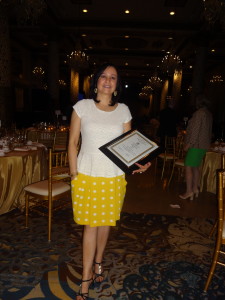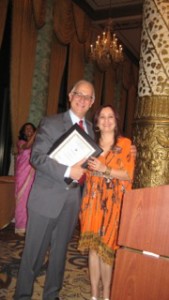Excerpts from the book
 When Justice Fails – Violence, Prisons, and African Americans
When Justice Fails – Violence, Prisons, and African Americans
“Yes, doc, I was in prison for 30 years for a crime I did not commit, like any other black man in America,” said Mr. Boyd as he lay back on his hospital bed.
It was early afternoon, and I was checking in on him to see how he was doing, though I had seen him earlier during morning rounds with my team of residents and medical students. In fact, I wanted to confirm what one of the residents had told me that day – he was wrongfully convicted when he was young and spent most of his youth incarcerated. It was a sickening story that I had a hard time believing. I had to confirm the truth behind it myself.
Mr. Boyd was a 70-year-old African American man with multiple complex medical problems for which he had a prolonged hospital stay that eventually took his life. We inherited him from another medical team at the month-end change of clinical rotation after he had already spent a couple of weeks in-house without any signs of improvement. I visited him at least twice a day, sometimes more. He had good days when things remained stable and bad days when he was worse. Lately, he had had more bad days than good. He lived alone and did not have any family members who lived close by. He never had any visitors in the hospital.
“Mr. Boyd, how did that happen?” I tried to sound as discreet as I could amid nervous thoughts of maintaining professional propriety. Though doctors are trained to elicit a comprehensive medical history from patients, we also know when not to be intrusive. We almost never cross the fine line between professional history-taking and being nosey. Right from the outset medical students learn what not to ask. But sometimes the rapport we share with our patients makes it acceptable to informally chat with them about their lives. In fact, most patients like their doctors asking them personal questions about their family and so forth. It shows that they care and helps to shape a special connection, the most important piece of the doctor-patient relationship in my opinion.
“Yes, doc, it happens to black folks all the time. I was at the wrong place at the wrong time.”
I couldn’t bring myself to ask him the alleged crime that he got incarcerated for. Thirty years meant it was probably a grave one, like murder or child sexual assault. Feeling instant overpowering guilt, as if I had something to do with his misfortune, I just stood by his bed, transfixed, physically weak, acutely aware of my shallow breathing, crushing the urge to say something in sympathy. Even if I had tried to, I couldn’t have got a word out without making my distress apparent to him. Doctors don’t do that. We are hard wired to be strong professionals who should generally not demonstrate emotion unless it’s a happy one. Besides, what could anyone have said that didn’t sound hollow and superficial?
During the time that we had spent together in the hospital, he was always cheerful and optimistic. Now I knew why. Being horribly sick was a breeze compared to being imprisoned for three decades for a crime committed by someone else. I had seen it on television once – a black man was exonerated and paid $750,000 in restitution money. Mr. Boyd never got a single penny. Picture one day in prison for a crime you did not commit. Imagine 30 years living with that truth yet unable to prove your innocence.
 Patient Absconding From the Hospital: Why do they leave?
Patient Absconding From the Hospital: Why do they leave?
A couple of hours later I was paged by the intern. The nurse had found Mr. Jones eating something. Apparently he had sneaked in a chicken sandwich from his roommate though he vehemently denied it. The colonoscopy was canceled and postponed for the next day as he had to be NPO for the procedure – nil per oral. I went down to meet with him and had a long discussion. He was apologetic initially, attributing his action to not having eaten solid food for almost two days. Then he became a little belligerent – he wanted to smoke. Of course, hospital rules did not allow that.
“Doc, I can’t eat, I can’t smoke. You gotta cut me some slack.”
“I will order a nicotine patch for you. It will help control your urges to smoke,” I said.
“Nah, those patches don’t work, I have used them before. I need a cigarette.”
“Well, you cannot smoke in the hospital.”
“Then I would like to go home. Please discharge me.” He was adamant.
Leaving against medical advice (AMA) – a complex situation that provokes a range of reactions among doctors – is not an infrequent occurrence faced by healthcare providers. If the patient has been difficult, there is relief. If he/she is homeless, there is concern. If he/she is very sick, there is anxiety. In the case of Mr. Jones, who was neither difficult, nor homeless, nor horribly sick, I felt that we would squander a valuable opportunity to evaluate him for a serious disease. It was almost impossible to schedule a colonoscopy within 24 hours of admitting a patient. He had been lucky twice since we were able to reschedule it for the next day a second time.
“Mr. Jones, please stay for one more day. I promise, you will be able to go home tomorrow. We must ensure you don’t have cancer.” I found myself cajoling him to stay.
“Doc, I’ll stay if I can smoke. You can let me go out of the hospital for ten minutes.”
“I don’t think I can,” I said. Not only was it against hospital policy, I suspected he would walk out and just go home if we let him out of sight, another statistic lost to follow up with no structured access to primary care. He could have early colon cancer that was curable but if he neglected care then it could spread and have a worse prognosis.
“Okay, give me something to eat then,” he shrugged.
“Well, since you have the procedure tomorrow, you have to be on a liquid diet today.”
Even as I said these words I found myself shaking my head in disbelief! Starve the poor guy again for another day? We were setting him up to fail! I felt a twinge of guilt. He was never going to agree to stay another night without food, without cigarette, more diarrhea, and interrupted sleep.
I had an idea.
“Mr. Jones, give me a few minutes, let me figure something out,” I assured him and stepped out of his room. Maybe I could escort him out of the hospital to the curb and let him smoke quickly there. I would not let him out of my sight for a second and then escort him back to his room. I paged the chief resident on call and asked her if it was okay to do so. She was stumped. She had never faced such a scenario. I thanked her and politely hung up. I was going to do it. I was ready to face the consequences of my actions but not willing to give up on him.
Mr. Jones was excited to hear of the plan. He had a pack of cigarettes with him and borrowed a lighter from his roommate. He was in his own clothes and not wearing a hospital gown. We walked to the elevator and went down together. We tried to look casual. No one noticed us. We stepped out of the doors and found a clear area on the curb. I walked away a few steps to give him some privacy. He lit his cigarette and puffed heartily. Then he turned and stopped a stranger walking past us. He offered him a cigarette and they started to chat. I guess smokers like to smoke in company! I never took my eyes off him. I escorted him back to his room when he was done 15 minutes later. He promised to stay the night and get the procedure done tomorrow. I heaved a sigh of relief and walked back to the nursing station. I was not going to tell anyone except my resident. No harm done, I thought, why complicate matters? All I wanted at that moment for him was to get the colonoscopy safely the next day.
 An Ode to County
An Ode to County
I miss working at County. It’s an ache that never goes away. I miss my patients the most. Moving away was hard but the most difficult part was the conversation I had with each one of them to bid goodbye. There were tears, sometimes loud sobbing, occasionally anger, but mostly disappointment. A few took the news stoically. I felt emotionally exhausted. We promised to keep in touch, knowing well that it would probably not happen, that we would never meet again. A handful said they would no longer seek care at County as they could not conceive changing physicians. My biggest concern was the possible attrition and lost to follow up that comes with a change in healthcare providers. I made sure that most of them had a follow up appointment with another primary care physician.
A few weeks ago, I received a call from a funeral home in Chicago. They wanted me to sign the death certificate of one of my patients. My initial reaction was utter shock – she was too young to die even though she had a very complex medical history. The last time I had seen her was a year and a half ago. Apparently she never went back to see my replacement physician. Maybe she sought care elsewhere, there was no way to know. It was heartbreaking to think of all the times we had met, chatted about this and that, confided in each other about our lives’ turns, hugged after the visit, bid that last farewell with a promise that she would watch her health closely. Even though the mind knows that I may never meet any of my County patients again, the heart holds a flicker of hope that it may happen. And if it did, we would shout in joyous wonder when our eyes met, embrace in a bear hug, and catch up on all that we missed! Sadly, that flicker was forever snuffed out for this one.
But THIS was County – the patient-physician bond was unlike any other. It was one big dysfunctional family that worked well in one dimension and was incredibly worn out in another. The cracks and fissures were visible for all to see but that bond was cement that kept it from falling apart. We reveled in it. There was an indescribable exuberance about County that was intangible but also infinite, a powerful and heady mix of optimism and confidence, an audacious anticipation of hope and courage, amidst a tumultuous groundswell of goodwill that resonated through foyers and antechambers and vestibules of the maze that was Cook County Hospital, a.k.a John H. Stroger Jr. Hospital of Cook County. The nameless County physician was the maze runner, gliding in and out of those cracks and fissures, healing and curing, soothing and easing, a stroke here and a caress there, a whisper of promise, a soft reassurance, a boundless cheer, that everything would be okay, that no hurdle was high enough, and in the end we will win. Even hundreds of miles away I can feel it, sense it, perceive it – an overpowering deluge of memories forever embedded in my spirit that besieges me enchantingly.
Until all that I am left with are waves of nostalgia, a longing of the soul, and the sounds of a stethoscope.
